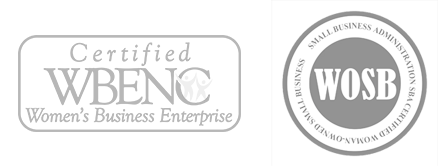THOMAS WATSON, President of IBM in the fifties, insightfully declared, “Nothing happens until a sale is made.” A company’s sales effort is the ultimate driver of organizational growth. It is the most critical function within any company and requires advanced training and intestinal fortitude for success. Since the sales profession is not for everyone, when you construct a winning sales team, allow the team to do what it does best with limited distractions for maximum efficiency. While this may seem controversial, the rest of the organization should consider it a top priority to support the sales team. Dedicated salespeople should only do one thing — sell. Allow others within your firm to take care of related administrative, marketing and operational tasks so that your sales professionals may spend most all of their time making contact with prospects. Beyond allowing the sales team to focus, implement these five sales-efficiency best practices in order to boost performance. Ensure that sales reps are given quality leads. Asking them to scrub or quality check the data is detracting from vital selling time. If your sales team is charged with generating leads, be sure to coach on how to identify ideal prospects, as well as how to avoid wasting time on bad leads. Organize leads into groups according to similar business category, lead source, title of prospect or company size. This will allow your sales team to prepare for calls more efficiently by letting the team analyze the entire group at once, instead of preparing for one call at a time. This will also give your team the ability to easily customize messaging and engage targeted prospects more effectively. Establish a consistent, disciplined prospecting process — a specific sequence of calls, emails and/or direct mail that works — eliminating as many options as you can. Many studies correlate sales-process structure with sales efficiency and, ultimately, with results. Narrow the lead list or territory to ensure it’s manageable for each sales rep. Create targets for the number of completed calls and meetings each week. Craft discussion guides and templates to streamline this process. This uniformity will allow sales management to see patterns, opportunities for sales-process improvement, and strategies for reducing the length of the sales cycle. A disciplined process can only be effective if you have the time management skills to execute it. Block time on your calendar for each planned prospecting activity, instead of approaching each day with no plan. Unless you have a plan, low-priority tasks will dominate your schedule. Every time a sale is closed, make it a standard to request at least three referrals from that satisfied customer. Referrals can be an infinite source of warm leads. Whether you are a sales rep or sales manager, consistently applying these simple best practices in sales efficiency will inevitably boost sales performance.
Recent Posts
- Optimization vs. Testing: Do You Know the Difference?
- Friction Points in the Customer Journey You Can’t See Without Objectivity
- Fear of Raising the Bar: The Hidden Obstacle Blocking Predictable Growth
- Why Differentiation, Not Imitation, Drives Market Share
- How to Build a Culture That Chooses Data Over Assumptions
Related Posts
 LeadershipOther
LeadershipOther
What To Do When You’re Not Steve Jobs
SEVENTY PERCENT of startup businesses fail within the first 10 years, according to a 2013…
RedRover Sales & MarketingApril 23, 2024
 LeadershipOther
LeadershipOther
Difference Between A Rut And A Grave
THROUGH THE YEARS, I’ve come to embrace the realization that I am an agent of…
RedRover Sales & MarketingApril 23, 2024
 LeadershipOther
LeadershipOther
Rewiring Your Inherent Resistance To Change
WHY DO SO MANY great organizations struggle with change? After all, as the Greek philosopher…
RedRover Sales & MarketingApril 23, 2024




